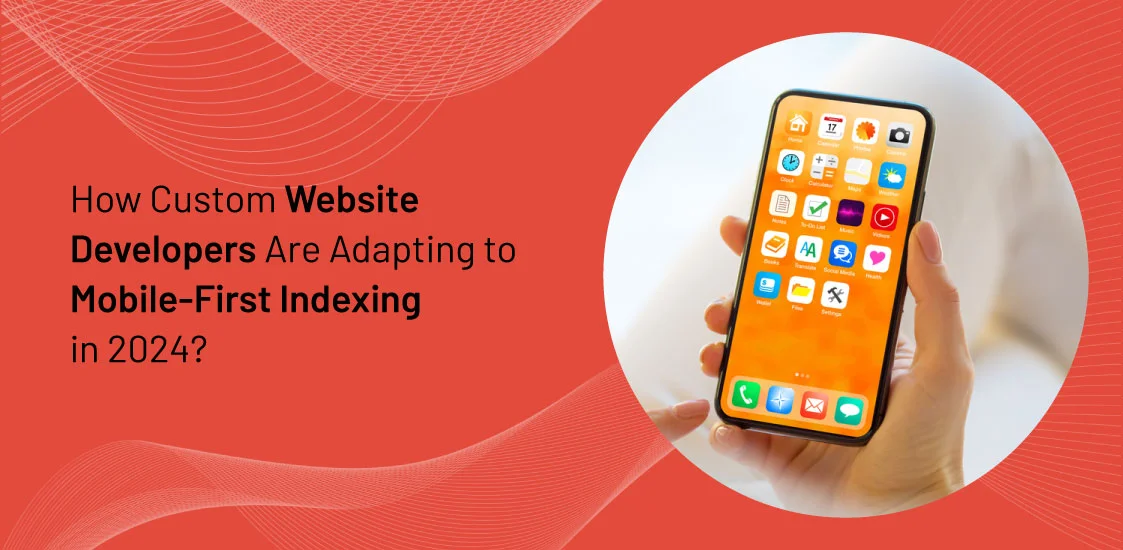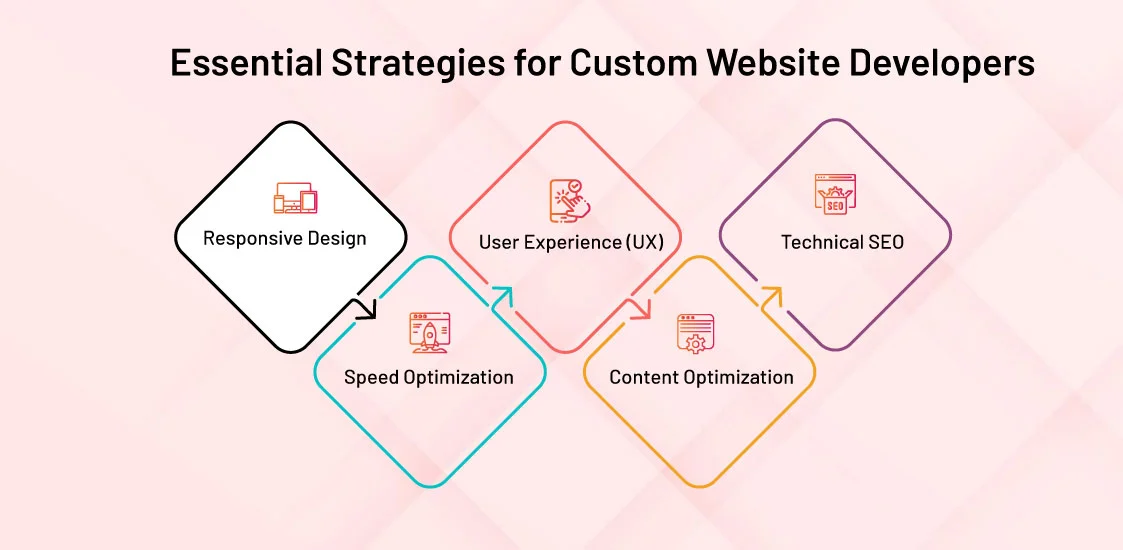
With the rise of mobile usage surpassing desktops, website developers must adapt to mobile-first indexing. But how does Custom Website Developer stay ahead of the game in 2024?
Mobile-first indexing means that Google predominantly uses the mobile version of a website’s content for indexing and ranking. This shift has forced website developers to prioritize mobile responsiveness and user experience.
In the fast-paced world of technology, Custom Website Developers need to constantly evolve to meet the demands of mobile-first indexing. Let’s explore how these developers are adapting to ensure their websites are optimized for mobile users in 2024.
What is Mobile-First Indexing?
Mobile-first indexing is a methodology used by Google for indexing and ranking websites. It prioritizes the mobile version of a website over its desktop counterpart. This approach caters to the majority of internet users who access websites via mobile devices.
In essence, Google’s Mobile-First Indexing ensures that the content and user experience of the mobile version of a website significantly influences its search engine ranking. It’s a crucial aspect of SEO in today’s mobile-dominant digital landscape.
How does Mobile-First Indexing Work?
Mobile-First Indexing is Google’s approach to indexing and ranking websites based on their mobile versions primarily. In this system, Google’s crawlers predominantly crawl and index the mobile version of a website’s content, considering it the primary source for ranking signals. This shift reflects the increasing dominance of mobile devices in internet usage.
Websites optimized for mobile, with responsive design, fast loading times, and user-friendly interfaces, are favored in search rankings. Conversely, websites with poor mobile experiences may see a decline in visibility.
Mobile-first indexing underscores the critical importance of mobile optimization for maintaining or improving search engine rankings in today’s mobile-centric digital landscape.
Essential Strategies for Custom Website Developers
Custom website developers are continuously adapting their strategies to align with Google’s Mobile-First Indexing. As we move further into 2024, these adaptations have become more crucial than ever. Here are some ways Custom Website Developers are adjusting:
Responsive Design: In the era of Mobile-First Indexing, developers are prioritizing responsive design. This approach ensures that a website’s layout and content automatically adjust to fit the screen size of any device, be it a desktop, tablet, or mobile. By implementing responsive design, developers ensure a seamless and consistent user experience across all devices.
Speed Optimization: Load times significantly impact user experience, especially on mobile devices. Developers are therefore focusing on speed optimization techniques such as minimizing HTTP requests, optimizing images, and leveraging browser caching. These efforts aim to reduce page load times, thereby improving the mobile user experience and positively influencing the site’s search engine ranking.
User Experience (UX): A great mobile UX goes beyond just a responsive design. Developers are creating intuitive navigation systems, ensuring text is easily readable on small screens, and making buttons and links large enough to be tapped easily on a touchscreen. The goal is to make the mobile browsing experience as user-friendly and enjoyable as possible.
Content Optimization: With Mobile-First Indexing, Google primarily uses the content of the mobile site for indexing and ranking. Developers are therefore ensuring that the content on the mobile site is equivalent to that on the desktop site. This includes not only text but also images, videos, and other forms of content. They’re also ensuring that this content is easily accessible and crawlable on the mobile site.
Technical SEO: Mobile-first indexing has brought technical SEO into the spotlight. Developers are ensuring that metatags are correctly implemented on mobile sites and that structured data is present. They’re also creating XML sitemaps and robots.txt files specifically for mobile sites. These technical SEO elements help search engines understand the content on the mobile site, contributing to improved indexing and ranking.
Conclusion
The shift to Mobile-First Indexing is a significant milestone in the digital landscape. Custom website developers, including some of the Best Website Developer in India, are continuously adapting their strategies to align with this change. They are focusing on responsive design, speed optimization, user experience, content optimization, and technical SEO to ensure websites are mobile-friendly and rank well in search engine results.
As we move further into 2024, these adaptations have become more crucial than ever. The future of web development lies in the ability to create seamless, efficient, and engaging mobile experiences. By staying ahead of the curve and embracing these changes, custom website developers are not just surviving but thriving in the era of Mobile-First Indexing.














